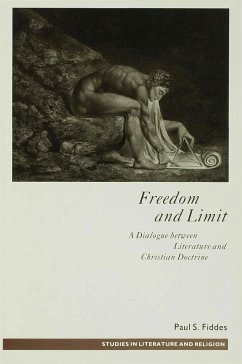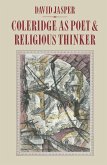If imagination is understood to be a human response to the self-revelation of God, what practical results might this have for the work both of literary criticism and theology? Both theologians and creative writers find human existence to be characterised by basic tension between freedom and limit, which accounts for a sense of 'fallenness', and which a dialogue between literature and Christian doctrine can do much to illuminate. Such a dialogue is worked out in studies of the poetry of William Blake and Gerard Manley Hopkins, and the novels of D.H. Lawrence, Iris Murdoch and William Golding.
Bitte wählen Sie Ihr Anliegen aus.
Rechnungen
Retourenschein anfordern
Bestellstatus
Storno









